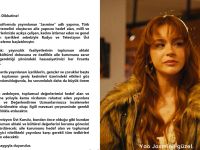WCM-Q students discover global healthcare challenges in Tanzania
Students of Weill Cornell Medicine-Qatar (WCM-Q) visited Tanzania to learn about cross-cultural communication and discover the challenges of delivering healthcare in a developing country.
Eleven students spent two weeks on a Service Learning Trip in the Kilimanjaro region, during which time they traveled to remote communities to set up field clinics and provide free health checks, visited a local hospital and an orphanage, and carried out home visits with resident healthcare professionals to share health advice and learn about common ailments.
The students also met with representatives of the Maasai and Hadza people and learned about their cultural traditions, as well as having the chance to visit some of Tanzania’s famed national parks.
The students began their service work at the O’Brien Maasai Community, where they first spent a day carrying out house visits alongside local healthcare professionals. The following day the students helped set up a field clinic and worked with local doctors and nurses to carry out free health checks in the community for two days. Under the supervision of qualified healthcare workers the students took vital signs and medical histories, and observed the examination, diagnosis and treatment process being carried out by the local doctors. They then visited the Karansi community in the nearby Siha district, where they again carried out home visits and helped provide a two-day community field clinic. The students also visited Kibosho Hospital, a 225-bed facility near the town of Moshi on the slopes of Kilimanjaro which sees around 150 outpatients daily and handles approximately 100 new births each month. They then visited the Amani Centre, an orphanage in Moshi.
First-year medical student Muhammad Izhar said: “I had always looked forward to visiting Tanzania, and I received the warmest of welcomes from the vibrant people that make up its population of seventy million. At face value, Tanzania is a developing country. Around 45 percent of people in Tanzania live on less than US$2.15 per day, according to the United Nations, and access to healthcare is a challenge. What statistics fail to capture, however, is that Tanzanians are blessed with natural beauty seldom seen anywhere else, from the vast wilderness of the Ngorongoro Crater to the heights of Mount Kilimanjaro. Its people are so kind and hardworking, and I have no doubt that Tanzania’s healthcare sector will continue to develop courtesy of the amazing doctors I met along the way there.”
Other highlights of the trip included a traditional batik class, trips to local waterfalls and hot springs, shopping at a local Maasai market, and safari trips to the Ngorongoro Conservation Area, Tarangire National Park, and Arusha National Park, which are home to a rich diversity of wildlife, including lions, rhinos, leopards, buffalo, hippos, zebras and giraffes.
First-year medical student Minatullah Al-Ani said: “Before Tanzania, I thought medicine lived within hospitals and advanced technology, but Arusha taught me it can be carried out anywhere people need help. In makeshift clinics, I saw how simple history-taking, empathy, and prescriptions could transform care. Hospitals, though understaffed and resource-limited, had doctors as dedicated as any I’d seen, providing order and compassion despite challenges.”
The trip was organized by WCM-Q’s Division of Student Affairs, which sponsors a number of WCM-Q students to visit the east African country each year to help them gain a new perspective of global health issues and contribute to health outreach programs. The students, who had all just completed either the first or second year of WCM-Q’s pre-medical curriculum, were accompanied on the trip by Ms. Sonia Sharma, biological sciences teaching specialist, and Dr. Avelin Malyango, assistant dean for medical student affairs and assistant professor of anatomy in radiology.
Dr. Malyango said: “We are deeply grateful for the warm welcome we received in Tanzania from the healthcare professionals, community members and support staff whom we met. Our students learned a great deal about delivering healthcare using the core foundational skills of conducting physical examinations, taking medical histories and developing knowledge of common local ailments and their symptoms. They also discovered that having a good understanding of cultural, economic and geographical factors can help a physician achieve better healthcare outcomes for the community they serve.”
Background Information
Weill Cornell Medical College in Qatar
Weill Cornell Medicine - Qatar is a partnership between Cornell University and Qatar Foundation. It offers a comprehensive six-year medical program leading to the Cornell University M.D. degree with teaching by Cornell and Weill Cornell faculty and by physicians at Hamad Medical Corporation (HMC), Aspetar Orthopedic and Sports Medicine Hospital, the Primary Health Care Corporation, the Feto Maternal Center, and Sidra Medicine, who hold Weill Cornell appointments. Through its biomedical research program, WCM-Q is building a sustainable research community in Qatar while advancing basic science and clinical research. Through its medical college, WCM-Q seeks to provide the finest education possible for medical students, to improve health care both now and for future generations, and to provide high quality health care to the Qatari population.






